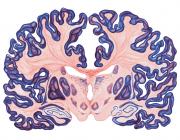Visual integration dysfunction in schizophrenia arises by the first psychotic episode and worsens with illness duration.
Publication Year
2016
Type
Journal Article
Abstract
Visual integration dysfunction characterizes schizophrenia, but prior studies have not yet established whether the problem arises by the first psychotic episode or worsens with illness duration. To investigate the issue, we compared chronic schizophrenia patients (SZs), first episode psychosis patients (FEs), and well-matched healthy controls on a brief but sensitive psychophysical task in which subjects attempted to locate an integrated shape embedded in noise. Task difficulty depended on the number of noise elements co-presented with the shape. For half of the experiment, the entire display was scaled down in size to produce a high spatial frequency (HSF) condition, which has been shown to worsen patient integration deficits. Catch trials-in which the circular target appeared without noise-were also added so as to confirm that subjects were paying adequate attention. We found that controls integrated contours under noisier conditions than FEs, who, in turn, integrated better than SZs. These differences, which were at times large in magnitude (d = 1.7), clearly emerged only for HSF displays. Catch trial accuracy was above 95% for each group and could not explain the foregoing differences. Prolonged illness duration predicted poorer HSF integration across patients, but age had little effect on controls, indicating that the former factor was driving the effect in patients. Taken together, a brief psychophysical task efficiently demonstrates large visual integration impairments in schizophrenia. The deficit arises by the first psychotic episode, worsens with illness duration, and may serve as a biomarker of illness progression. (PsycINFO Database Record
Journal
J Abnorm Psychol
Volume
125
Pages
543-9
Date Published
05/2016
ISSN Number
1939-1846
Alternate Journal
J Abnorm Psychol
PMID
27030995

